- From Faith Current: “The Sacred Ordinary: St. Peter’s Church Hall” - May 1, 2023
- A brief (?) hiatus - April 22, 2023
- Something Happened - March 6, 2023
Read this in a comment this morning: “I am 59 years old, and a brand new Beatles fan as of two months ago, so basically a blank slate with no preconceived thoughts on the band.” Which got me to thinking, what sources would I recommend to a person who was new to The Beatles?
Of course I’d start with the music. I’d probably recommend the mono box set, but I actually think which version is a bit less important than going chronologically, spending a little time with each album in order. As you enjoy yourself and get to know the song canon, you’ll establish the relationship between one and the next. You’ll see the changes, and the growth. But the music has to be the bedrock of any understanding; though J/P/G/R are all uncommonly articulate people, the music’s how they chose to communicate, and how they communicated best.
Then, I’d recommend watching, and then reading, Anthology. Though there’s an element of PR, Anthology is how they saw themselves and what was going on around them. Also, it gestures a bit towards the world they inhabited. The Beatles phenomenon was fundamentally about the time and place of the Sixties; Anthology shows that. There are a lot of commonplaces about the Sixties, which makes it particularly important to know some detail: The Beatles where engaged in a complex feedback loop with macro trends like youth culture, meritocracy and social mobility, a large stable and prosperous middle class, birth control as well as individuals. The Beatles’ story makes less sense if you don’t know about Harold Wilson, Vietnam, Mary Quant and Vidal Sassoon, the Cold War, and so forth.
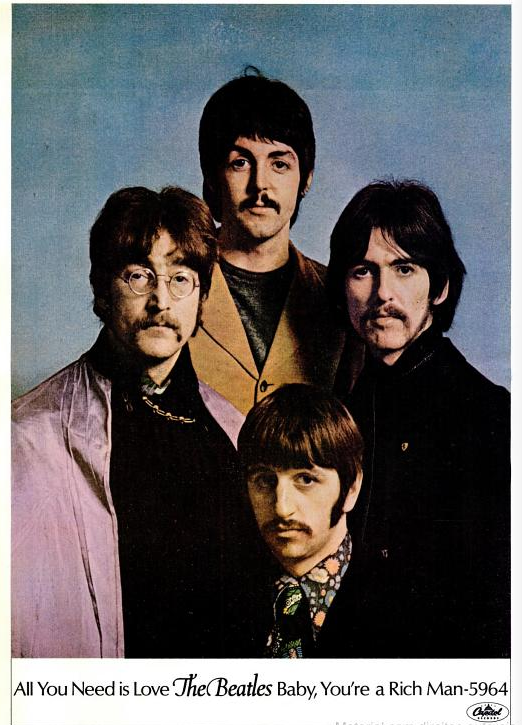
Then, I’d recommend a quick reading of Davies; though flawed (because of what he couldn’t say) it’s a fluid retelling of the story as it was seen in 1967, and shows the band at its creative high point, before Brian’s death and India changed everything.
For a general history, I’d probably recommend a book I never see mentioned: Mark Hertsgaard’s A Day in the Life. Once again: fluid, and anything Hertsgaard missed, you’ll pick up after. After Hertsgaard, Lewisohn, if you’re obsessed. Then, if you’re still obsessed, Devin McKinney’s Magic Circles.
There are lots of blogs and podcasts around, but these — Dullblog very much included — are what I’d call tertiary sources. There are primary sources, which are testimonies or direct evidence (interviews, photographs, recordings, etc.); then there are secondary sources, which use primary sources, but cover them with a layer of analysis and opinion. Good secondary sources play by well-known rules, so the reader/viewer can see possible bias. Then finally there are tertiary sources, where the job is to repackage or summarize information.
The great advantage of blogs and podcasts, their informality and conversational nature—which leads to an ease of assimilation and genuine entertainment—reveals them as fundamentally tertiary sources. They’re great if you’ve done the work with the primary/secondary stuff, but if not, can be misleading. Some of what I’ve been complaining about lately has been the internet-led dominance of tertiary sources, e.g., “Paul was a workaholic,” rather than “On September 12, 1967, two weeks after Brian funeral, the Beatles had their first day of shooting on Magical Mystery Tour.” The profusion of tertiary-source stuff on the net is because the people making the content are not getting paid. It’s easy to say or type the first thing that comes out of your head; secondary or primary stuff requires more time and money to create. There is more and more Beatle-data on the net, however, and this is a great thing. Someday I hope all the paper yellowing in people’s basements is scanned and put online!
So, welcome newbie! Do the listening and the reading first, and the tertiary sources will be much richer experience. To me, listening to podcasts/reading Dullblog would be like listening to bootlegs before you’d heard the released version.
What would you suggest for someone just getting into The Beatles?

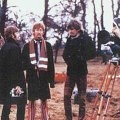
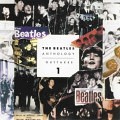
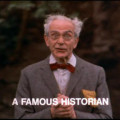
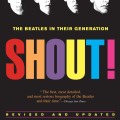
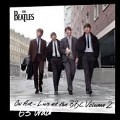


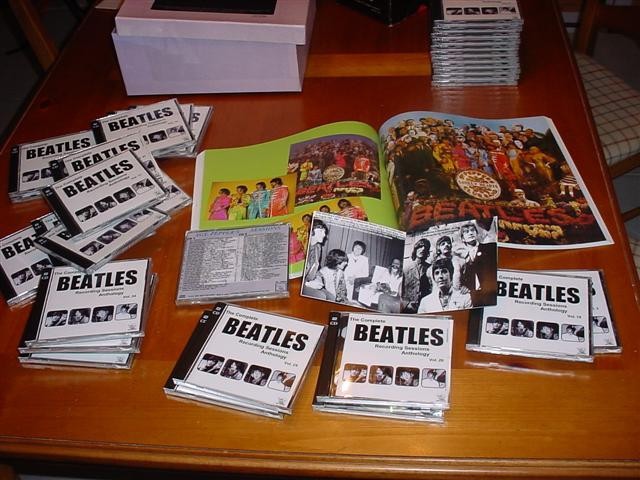
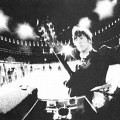
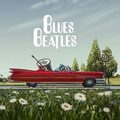
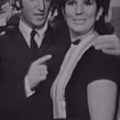
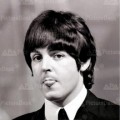
Wow @Michael I agree with all of your suggestions except Devin’s book, only because I never read it. I even remember making these same suggestions several times to various new fans who asked me for suggestions. Hertsgaard’s book is so underrated by the fandom. It’s an overlooked gem. When I was a new fan I started with listening to the albums in order, then I read the Davies book. If the Anthology book and movie had been available I definitely would have watched/read those next. I also agree with your critiques of Davies and Anthology but they are still a perfect place to start.
After you’ve ingested the basics, I’d say let your own interests guide you when it comes to the graduate-level reading. One of the things that makes the Beatles so compelling is how broadly their influence radiated, and how wide-ranging their own influences were. They affected, and/or were affected by, recording technology, modern art, photography, filmmaking, literature, the rise of television, eastern religion, drugs, 20th century politics, and so on up through furniture design, vegetarian cooking, racecars, gardening, Siamese cats, and cartoons about trains.
If you’re a musician, check out the Hal Leonard [i]Complete Scores[/i]: “full transcriptions from the original recordings” of “every song written and recorded by the Beatles.” It’s helpful to have on hand when reading Ian MacDonald’s musicological analysis, [i]Revolution in the Head[/i], which I keep pulling back out of the bookshelf. I don’t agree with all of MacDonald’s arguments, but his thesis is fascinating and the examination of individual songs reveals a great deal about how the band evolved in their craft, inspiration, and philosophy.
If you are interested in the mechanics of recording, Lewisohn’s [i]Complete Beatles Recording Sessions[/i] is a foundational reference. Gearheads would also enjoy [i]Recording The Beatles[/i], by Kevin Ryan and Brian Kehew. It’s very heavy but worth it for the cartoon illustrations alone.
If cultural history is your thing, in addition to the works Michael mentioned, I’d nominate [i]Can’t Buy Me Love[/i], by Jonathan Gould.
If you like photography, the coffee-table books by Robert Freeman, Linda McCartney, Astrid Kirchherr, and Ringo Starr are all beautiful and illuminating. I think anyone who ever got near them with a camera has published a book by this point, but those are among the best that I’ve seen.
@Christine, I have Can’t Buy Me Love on my shelf but have never read it? Worth reading, then?
.
Another cultural history that’s worth reading if the interest emerges is Ready Steady Go by Shawn Levy. The only other cultural history of Swinging London that I know of is Christopher Booker’s The Neophiliacs, which I read the first 100 pages of, but was turned off by its Muggeridge-encouraged Christian narrowness. (Muggeridge, ex-editor of PUNCH, was a fellow who felt that Life of Brian was making fun of Christ. Poor Malcolm; if he’d only been born twenty years later and an American, he could’ve been a Republican!)
In His Own Write and A Spaniard In The Works.
Oh yes on these two!
So, this reminded me of being in Amoeba Records in San Francisco about a year and a half ago, and having a woman ask me (we were both in the “B” section of CDs), “Do you know anything about the Beatles?” I really had to pump the brakes on my initial reaction to avoid scaring her off!
.
One additional book I’d recommend, that I hardly ever see mentioned, is Mojo’s The Beatles: 10 Years That Shook The World (published in 2004). It goes year by year and includes scores of great photos, and because the sections are written by different authors, it offers a range of perspectives. I think it’s an excellent starting point, and offers a lot of avenues for further exploration if someone is so inclined.
.
And on a tangent, I got a kick out of seeing that Chicago’s famed improv group The Second City has called their current streaming programming “Helter Shelter.” Truly, there is no end to the influence of the Fabs!
thumbs up on the “Mojo 10 Years” book–recommended.
.
The reason I picked In His Own Write and A Spaniard In The Works is because they’re the perfect introduction to … I don’t know, the vibe of the band?
I mean, I can’t imagine Gene Vincent or Johnny Gentle or Cliff Richard producing anything like those books. Just more proof for a new fan of how unique the Beatles were in their time and place.
As a very young teen collector, I was proud as a peacock getting my hardback versions of those two Lennon authored books. His calling Nazis the nasties was priceless stuff. Nothing exceeded his great but now PC incorrect line, …women should be obscene not heard. I regularly laugh at it. His old wit before he started playing guru was John at his best. The dude was a talented cartoon illustrator but early Stu artist was the great talent and painter Paul in old age has done some excellent art work. My favorite looks like looking through a jet hole into a prison yard with a guard tower but Macca showing it interprets the piece differently. He’s hasn’t showed his private paintings much as only displayed them once I read to an interested place. I have an old American life or look mag of Beatles painting in Japan ,as cooped up , and Ringo’s art very good snd last of his concerts I attended, he sold copies of his artwork on signed drum kettles. I’ve read where some dismissed Macca’s art as not very good, but then many folks dismiss his music for same reason, so I got curious. It is an interesting alternative idea to think of the individual Beatles expressing themselves in other mediums had they not been Beatles.
Seeing that “All You Need Is Love/Baby You’re A Rich Man” photo of the Beatles reminds me of how cool they looked with those hair styles, and how ridiculous anyone else looks with the same hair.
As a female growing up in sixties and seventies, I thought guys with Beatles style hair were very cool. They began to grow that style by seventies and some had mustaches and side burns were very in then. The mullets now called though prefer longer in front mullet was particularly hot on guys, but never liked the very long hair some guys had in hippie late sixties or early seventies, George extremely long hair ATMP era but he was especially handsome with permed and straight hair, especially after straightened his teeth, I loved when John returned to his mid sixties Beatle cut in seventies and Paul close cropped beard cover of first album he looked great. Ringo was the onLy Beatle would could pull of that almost shaved head with ine earring, as he looked like a cool aging jazz singer. This is just a female opinion, and, man do I miss those great men with hair eras as do not like the return to very conservative male hair cuts and the crew cuts are most horrid male style ever invented, A style of military and of conservative eras. I like men with hair. The MMT hair in video was cute and before they descended into more hippie hair of last few years of group,
If I were new to the Beatles, I’d stick with the music – there’s too much heartache otherwise! But if pressed to recommend a bio I’d go with Gould. At least I didn’t feel compelled to make a list of errors.
I hadn’t read Hertsgaard in ages so I gave it a skim and I can see why you recommend it. Still, as an a-Paul-ogist I take issue with some of what he says about the breakup. (I think I’m really more of a Paul ‘splainer – thanks to some misrepresentations of the way the breakup went down, he needs to be explained. OK, defended. Let’s just say I agree with Mikal Gilmore’s assessment that Paul was treated shamefully and unforgivably and forced into an impossible position.)
So back to Hertsgaard. I suppose I’m nitpicking, but…
He says Paul bought 107,000 extra shares of Northern Songs (it was 1,000), and there’s nothing about John having lost 106,000 in his divorce. And honestly, we don’t know when Paul bought his puny number of extra shares or if it was a secret. We also don’t know if John was still angry after he realized Klein had, perhaps unwittingly, misrepresented the situation.
Hertsgaard claims Paul insisted his first solo album be released before Ringo’s first solo album and “Let It Be,” and that Ringo was sent to reason with him about it. First of all, Ringo’s album came out before Paul’s and when Neil Aspinall asked Paul to delay his album a bit to give Ringo’s album more breathing room, he agreed. Second, Ringo wasn’t sent to reason with Paul. He took a letter from John and George and told Paul he agreed with it. The letter informed Paul that the mid-April release date he’d slated for his solo album had been moved to early June because “Let It Be” was finally ready for a late-April release. Of course, let me know if I’ve missed something, but the letter is printed in “Anthology” (which is a bear to read!).
Sticking with the matter of release dates (and straying from Hertsgaard for a moment), I have to wonder why they didn’t set the “Let It Be” release date close to the film debut in the first place, which would have put a month between it and Paul’s album, and how much of a buffer was even necessary. “Cold Turkey” had been released a week before “Something” and John’s and George’s first solo albums were released 11 days apart later that year. Were their motives innocent or were they giving Paul the shaft, perhaps encouraged by Klein?
Hertsgaard also says George quit after the argument with Paul shown in “Let It Be,” and that Paul is telling George “how he should be playing his instrument.” It’s a common error and maybe all those bootlegs hadn’t been examined yet… Aside from being wrong, it’s not a huge deal since it’s pretty clear that Paul was sometimes overbearing and that it was problem for George. Still, it’s annoying because what the argument was really about is less damning to Paul (am I right?), plus George walked out after an argument with John a few days later.
Paul’s infamous press release is somewhat misrepresented, but that’s more opinion than error – and his opinion is more common than mine. To me, the phrases “Time will tell,” “just a rest,” and “Temporary or permanent? I don’t really know” don’t add up to “I quit.” Of course, they wouldn’t have sold as many newspapers either.
@Lara, I admire your Talmudic attention to detail. I think the topic required a book of its own, and finally got it.
@Michael G., I was surprised how much I enjoyed Can’t Buy Me Love. While a lot of Beatles books glide over the actual music, Gould discusses each album in depth. The book doesn’t deliver any bombshell revelations, but he has some interesting insights. He weaves in digressions on the effect of the invention of recordable tape, the birth and rise of top 40 radio, Weber and Freud’s concepts of charisma, and the Lady Chatterly trial, among other topics. He also provides a fairly incisive biography of Yoko.
His writing is fluid and often witty. One line that has stuck with me is that Paul’s harmony line in Act Naturally “sounds like the good singer who lives in side the head of every bad singer.”
Fluidity in writing, especially an oft-told story, is hugely important. I must admit that Lewisohn’s a harder read for me than I wish, because he’s not as fluid as others.
.
Gould and Hertsgaard (and Spitz) are important bridge-books, between the initial takes on the history–early 80s books like Shout! and films like The Compleat Beatles, and Davies of course–and then definitive works like Lewisohn is creating. Those early books/films–I’d throw Goldman in there on the lurid end, and You Never Give Me Your Money on the other end — are much closer to journalism than history, with the heat and flaws of journalism.
@Pidpoo – I agree about John returning to his mid-60s Beatle cut and I love his hairstyle during the making of Imagine. George and Ringo both looked better with long hair but the opposite is true of John and Paul IMO. They all looked nice with trimmed beards and/or semi-long hair. As for crew cuts, not ideal but they are better than mullets for sure. In fact, I’d venture to guess that they played a major role in why Paul and Linda weren’t taken seriously in the ’70s.
@Michelle, My memory of the time and the then called shag but now called mullet hair style is that they were the latest thing cutting edge rage when Paul and Linda wore them as did Keith Richards, Bowie and others wore hair and similar clothing styles then. Just because that hair and dress style became dissed in later decades and especially is now does not mean it was dissed and ridiculed then. It was throughout this time that Paul and Linda went from the hippie early seventies look to the zany hip Athen contemporary seventies clothing and hair look as well.
Paul and Linda did this wisely to appeal to a younger audience and to build a younger fan base and could only do this by being contemporary looking and sounding to a younger generation and they MASSIVELY succeeded because of it, as the door had been mostly shut to their older audiences and critics. Paul, per Phillip Norman, DARED, in blasphemous fashion, to create another group after the Beatles, I would add that drastically appealed to teen, and on top of that with Wings Over the World tour and record sales,, he broke several previous records set by Beatles, amazing the general press but disgusting the boomer snob rock press. was one of the very first to wear the style and because folks now don’t like the style didn’t mean folks then didn’t love it.
I know when I was in junior school forward and that his hair, clothing and music was in style, it was TOP cool, cutting edge then hair and dressing then and all of my rock mag or fanzine covers had dudes with that new seventies style with that hair and dress and seventies or long metal or hard rock singer hair, dress and music. It is an anachronism to assume that Paul and Linda were ridiculed because of the contemporary seventies hair just because it is woefully ridiculed now.
Older sixties fans, critics and press ridiculed him because he had been a Beatle, the sgt pepper and rigby dude, and Sullivan Beatle dude with John Lennon and group . John and George fellow solo singers were elephants memory hippies and George’s were other rock singers so they were excused but Paul started a group With a completely different approach and sound. How dare he update for a younger generation, snob older folks thought then, but it was the smartest thing he ever did and he continued to adapt along the way later in his career, sometimes successfully, sometimes not. That whole look was part of the then new seventies style, was a look younger teens began to wear and like. The Paul and Linda look by 73 forward would have looked mismatched had they been updating music style by wearing ram and wildlife era hair. It was part of their entire shifting image and adaptation to changing contemporary music of that era. My generation then wanted our pop rock singers to look and sound contemporary in every way even if they had been a Beatle. I can only speak my my generation and kids around me which overlapped hippie and early seventies metal and glam rock. Early seventies forward styles and sounds were just as important as mid and late sixties ones.
See Wings performance of hi, hi, hi in 73 mcmouse video to mainly wildly enthusiastic younger audiences and Rock Show where he looked, dressed and sang songs for mostly a younger generation and played standing room only, to kids who camped out general admission and raced in long lines to get into wings shows and packed huge stadiumsA, many times two shows in one city and became the biggest tour of the seventies and tied with Elton I believe for selling the most records in the seventies. See wings over world documentary then shown on tv. Smartest thing he and George later on mtv ever did was to reinvent their images and adjust their styles for younger audiences, as they sold some and were still popular with old fans earlier but were languishing till updated. Paul and Linda hair was the latest rage then when they wore it and he was still young enough to pull it off and to be part of that era, trend setting. He endeared t him a whole generation behind Beatles boomers because of it.
The seventies and late eighties and probably nineties looks and styles were just as important to those decades as the mid and late sixties to youth as hair and clothing trends are today. This is an area of my personal interest and remember the era of retail fashion merchandising school era and the effects of hairstyles on the decades. The late seventies male hair styles came in with the punk era and all but a few big hair metal bands and pop new wave singers cut their hair in the eighties. Paul began to keep hair shorter from 79 onward till again grew it longer by late eighties as a renewed touring singer adding old Beatles songs to his repertoire. I have studied effects of hair and clothing trends as an amateur and find thus sociologically interesting, as I myself was a fashion slave from psychedelic through eighties eras. Should have seen my glitter and velvet platforms complete with satin top, high school era loud flower dresses and pants split almost up to top of leg andm in disco eraM and my first mini skirt made from culottes in 1967. You would REALLY be laughing now. Those were great fun times. LOL.
Crew cuts better than mullets? No way. Imagine the Beatles with crew cuts. I remember those god awful crew cuts in early sixties. NEEDS MOAR HAIR. That old hippie broadway musical really impressed me, I guess. LOL.
@Laura. Best advice ever. Just listen to music. Then listen to it again over and over before the petty prejudices of biographers and take hold.
.
@Michelle. I agree with you regarding John’s mid-sixties cut and I also thought he looked pretty cool with a buzz cut as well. I thought they all had good hair in the mid sixties but John and Paul also had great hair at 20 something. Astrid’s moody black and white photos showing them with their quiffs are something else. According to his hairdresser Leslie Cavendish, Paul’s best hair ever was during the McBeardy era (totally agree) with or without a beard. Sadly it’s been all downhill since then. Sorry @pidpoo I just don’t like the mullet at all, it looks cheap and horrible. I realise that people become attached to the fads and fashions from the era they grew up in, but disliking a particular look doesn’t mean people are snobs. All decades had their hits and misses. The mullet became the rage of English and European footballers – George Best was an adherent if remember – but it never suited Paul’s good features in my opinion. He has kept with the style to this day, god knows why.
.
I never quite got why Paul and Linda with Wings had to appeal to teens. At the end of the day it was the fans who grew up with the Beatles who kickstarted Paul’s solo career (and the others) and he needed them. Then he lost many of them because of his change in image and musical direction. In their thirties and trying to compete with 20-23 year-old artists made them seem old to me! Wings have been a double-edged sword for Paul. In forming them he said there was no way they could match the Beatles, but in saying that he was doing himself down. It’s dogged him ever since. The others weren’t interested in comparing themselves to the Beatles – they just wanted to establish themselves as solo artists. I believe it’s why John and George’s solo careers are often taken more seriously than Paul’s. That doesn’t mean they were better by any stretch, but I do think Paul had a credibility problem at times in trying to be all things to all people.
@Lara wrote: “I never quite got why Paul and Linda with Wings had to appeal to teens. At the end of the day it was the fans who grew up with the Beatles who kickstarted Paul’s solo career (and the others) and he needed them.Then he lost many of them because of his change in image and musical direction.”
.
I’m assuming you mean that Paul lost aging Beatles fans because of his change in image and musical direction with Wings, a band aimed at teens?
.
This is all guessing, but as someone alive in the Seventies (maybe you were, too?) the knock I always heard on Paul was that he didn’t change ENOUGH from the Beatles, that even when he was successful he was stuck in the past; for example, when critics talked about Band on the Run, they’d highlight the structural echoes with Pepper, and not favorably.
.
In any case, I never get the sense from 70s Paul that he was pandering to a demographic; as much or more than Lennon or Harrison, McCartney was an artist still fully, sincerely engaged with his craft — and Tom Doyle’s book reinforces this. The problem wasn’t that Paul was aiming at teens with his new musical direction–what other teenybopper act was taking his wife and kids on tour? — it was that he was still stuck making Beatlish music, his music, in the era of Led Zep, Bowie, Queen, and eventually punk. I generally see no difference between the McCartney of Abbey Road and Red Rose Speedway — except for the magic of the Beatles’ collaboration. I’d argue it was the loss of this awesome collaborative power that diminished Paul — and he perhaps least, certainly in a commercial sense. Neither George nor John had *any* artistic currency after 1975.
.
Of the four, Paul is the one who aimed for, and got, mass popularity; and he was the one who most quickly and surely connected himself with his Beatles past, even going so far as to play a bunch of Beatles tunes during the 1976 tour (which coincided with a huge burst of interest in the Beatles). George had played a few late-Beatles tunes on his 1974 setlist, but IHMO that was more about a paucity of hits; as ever, he seemed to rather resent that people were still interested in his old band. Unlike George, unlike John, Paul embraced that love, and Beatles fans embraced him back. Even today, there are a lotta Wings t-shirts at Beatlefest.
.
Tribute acts like ELO and The Raspberries aside, Paul McCartney was the obvious place for people to go if they wanted Beatles-type music in the 70s. Paul was one of the most commercially successful acts of the decade — his sales absolutely dwarfed the other three — and so it seems unlikely that this massive group was teenaged Wings fans. My sense is that most of us 70s McCartney fans were primarily Beatles fans, first- or second-generation. I’ve never met someone who loves Wings but hates the Beatles. Surely that person must exist. 🙂
.
Seventies Paul was attempting to appeal to a mainstream pop audience which grew more fragmented by the year. This started after Pepper and really accelerated for a decade; by the era of punk, popular music was so varied and those differences so stirred up by marketing that you had actual feuds (disco vs rock; punk vs everybody). As niche talents, John and George fit more easily into rock’s landscape; Paul was trying to make broad hits, and succeeded probably more than anyone else did or could. I mean: “Mull of Kintyre”? Really? Only Paul could turn that piece of literal granny music into a worldwide hit.
My two cents about McCartney and Wings: I think that more than any of the other Beatles, McCartney is a performer. He clearly loves playing to an audience. My own sense is that when the Beatles stopped touring, it was hardest on him. Wings seems like first and foremost a way to play live again — hence the need for a band.
In the early days of Wings, they were riding around on a bus and playing impromptu gigs at universities, which I think speaks to McCartney’s need for an audience. That’s both a weakness and strength for him, in my opinion. A weakness in that it can lead him to do projects he shouldn’t, and follow trends he shouldn’t, and a strength in that on stage he projects appreciation for his fans and for what he’s doing.
.
A review of a McCartney show a few years back (sorry I can’t remember who the critic was, or the year — I will try to dig it up) said that McCartney plays every show as if it’s an audition. There’s truth to that.
Michael: Sorry about that. I’m clearly a dog with a bone nobody else wants – I should be happy about that! (The Reply button didn’t work, so I tagged onto the bottom.)
Lara, I second you and @Laura: “Best advice ever. Just listen to music. Then listen to it again over and over before the petty prejudices of biographers and take hold.”
.
Totally agree with that. The harmony they showed as writers and performers never lets you down like some slanted biographies can, although there are good parts in many books.
“I also thought he looked pretty cool with a buzz cut as well.”
.
Yes! The Instant Karma video, very cute. Great post overall, by the way.
@Michael, you made some extraordinary and valid points about solo Paul and Wings as well as other solo Beatles. I got to rethinking my old notions by what you said. I have a view British pop mags on Paul marketing him as a pop star. I don’t remember early Paul fans seeing his music as sounding too Beatle like but in creating a new solo band, their music was always compared to the Beatles and seen as less. Solo Paul and wings were heavily critiqued then for not being enough like later Beatles rather than being or sounding too much like them. I agree, that Paul use of such musical techniques as medleys on early solo and wings albums and fragments were on Beatles albums but these similarities were unnoticed then or seen as weaknesses in reviews. It is a contemporary notion that he sounded more like Beatles solo and wings because of critical re-evaluation of all of his solo. At the time all of my paper reviews and fans thought solo John and George And even ringo sounded like late beatles and they thus saw Paul as falling short of lofty Beatles high standards.
I attempted to remember when Paul solo music began to sound most like the Beatles and it was BOTR, but no one then said it was too close to or as good as the Beatles. It has been seen as resembling Beatles album only as is a concept album, but belatedly critics now see ram and egg as concept albums. By wings tour, Paul had built up wings from scratch, gotten through the early style proto grunge style screaming and ram songs and has seventies contemporary sounding AM and FM hit singles and albums.
Also, the wings concert I saw has to be honest a mixture of folks my around my age, 19 then, and maybe my older siblings ages. Many went to see the concert as heard band was so good live and, yes, because he was a Beatle and his first American tour since Beatles 66. Wings tour played equal number of George solo tour two years earlier Beatles songs. All solo Beatles distanced themselves from Beatles sings due to lawsuit and establishing solo careers and Paul carefully picked songs he had written. Michael, you are hearing what other seventies critics then didn’t hear due to prejudices but reassessing critics today hear that, indeed, Wings sounded like a seventies beatles and I could write a separate comment about how their difference sequential albums correlated with Beatles albums.
Michael, I must correct your notion that Mull of Kyntyre was granny music. It was only a mega hit in Great Britain as hailed as a great Scottish anthem. In America, it was the B side to the more rocking Girls School. It may have been marketed in common wealth countries as the A side but became the mega hit only in Great Britain, outselling all Beatles records. Mull became highly derided especially in England as so overplayed. As an American,i had our single and was surprised to read later that mull was mega hit in England. The country of Scotland would still take great umbrage with you calling that song granny music, as it is a football anthem of one team in their country, played before every game.
One day you should do a thread on granny music because no one did more for it than the Beatles, as after their rock n roll phase, I did nothing but granny music. John invented that term. Revolver through white album, with the several rick songs exceptions are granny music. Many deride the ballad dirges of let it be and all of abbey road as granny music. As granny music is any genre not rock n roll or hard rock, almost all solo Beatles music is indeed granny music. However, Mull of Kyntyre Is a folk with waltz genre style ballad, making it sound centuries old.. Granny music is a derisive contemporary term now. Wait till you get on youtubes and read kids calling ALL Beatles music granny music, so careful throwing that term around. You must remember also, what was popular in the seventies or sixties would not necessarily be popular now, mull of Kyntyre or Beatles or solo Beatles. These songs or acts are only popular to younger fans of group or solo Beatles deciding they like them. Seventies music was much more tolerant of diversity than today, as these things fragment into categories now.
Lara, let’s agree to disagree about the hair styles. Calling Paul’s early wings hairstyles mullets is an anachronism mistake younger generations make, as it was called the shag then. Later decades the style called mullets and derided as short hair in men more popular. Originally, style had very short bangs but long in back but then shifted By mid seventies to longer bangs in front and long in back. Any reference to a later dude who wore it is irrelevant to those who wore it in seventies as May have been mullet when later dude wore it but shag in seventies, a then popular style especially for rock stars. I can’t believe folks now are still ridiculing hair as well remember these old men with long hair looking like girls and late beatles long hair looking like hippies. Ridiculing variant male hair styles never goes out if style don’t guess. LOL.
As to Paul appealing to younger folks, he did not have the cred of John or George as early solo albums sold OK but were not critical darling albums John and George had. He was seen as lagging. Other solo Beatles chose to play live with big name rock stars and record with sessions musicians. Paul chose a different solo route completely which ironically ultimately led to his outselling and outperforming the others live by wings world tour era and ironically it is his indie style ram that is now seen as the brilliant album as POB was never seen as a great seller But hailed as greatest solo Beatles album though did well enough and it , the completely different George album, in subject matter and production styles are now completely seen as dated. Styles come and go.
It was do or die for Paul and wildlife was leftover ram tracks and proto grunge screaming songs like Monkberry moon delight and oh woman oh why and a ground up concept album of song with no lyrics, cover songs, a screaming rock environmental anthem, and developed songs on other side and rrsw is the final laid back rural completing the early rural series, yielded first number one single and provided songs for two years of wings college concerts series before the mid wings albums after band played in big tour.
Like other solo Beatles, Paul was under extraordinary pressure to succeed and even ringo had great early success with big selling singles and his ringo album. Paul was seen as the lagging Beatle and he did have old Paul fans from Beatles days but more bought ram than other Paul albums. Artists were expected to produce an album every two years and under heavy expectations. You could agree with Michael that Paul wanted and wrote hits but John deswsnted one from double fantasy, kept asking if would be if a number one album or single.
I never thought Paul left fans expectations, as Michael said, though he was smart not to stay behind behind with old Beatles or wings or even mtv fans and critics credit him now for that as he moved forward, though, I don’t think he met expectations till BOTR album, an album critics, fans and John agreed was great, and Paul had to change music and styles quickly in the rapidly changing seventies, long after other Beatles fizzled or retired, just to stay in the game. Paul throughout his career always had a zany streak, sometimes met fan expectations, sometimes not. I think music changed more rapidly in the seventies than any other decade as several major musical styles competed then. Paul had to straddle both writing hits singles and albums to stay in the game and to be adventurous enough to adapt and stay ahead. After all, he made egg album and singles and McCartney II in 79. All artists dream that they had the luxury of just concentrating on their music but are in a business expecting otherwise. Paul actually came closer than other solo Beatles, to his detractors times, to following his muse.
You are correct about Paul’s age being brought up even by reporters on wings tour…see wings over world documentary, as thirty old then and by mtv era record company quit promoting him much by age 45. In sixties 30 was old and as rockers aged, younger singers emerged. This was not an issue for John as died at 40, George had last number revival album, cloud 9 at just over age 45 and ringo retired and retired and returned as an oldies touring act. After Press album and after age 44, Paul continued making music, some like fireman works, very contemporary, but became an oldies touring act, beginning in 89 incorporated more wings and Beatle songs in show. Artists don’t just have luxury of concentrating on their music, as it’s an industry geared to younger performers.
“I’ve never met someone who loves Wings but hates the Beatles. Surely that person must exist.”
He does! He’s a friend of mine. English, born in the 1960s. He grew up with Wings on the radio, and he loves them but doesn’t much like the Beatles. I figure he’s half right, so I leave it alone. (He’s a bass player to boot!)
@Lara – “There was nothing in Wings that even remotely sounded like For No One, Hey Jude, Eleanor Rigby, Helter Skelter, and too many others to count. To my ears, Band on the Run was nothing like Pepper, Red Rose Speedway nothing like Abbey Road.”
.
Agreed, there was nothing earth shattering about Wings. Paul wrote some nice music during that era but not many standards, if any. I don’t think they sound like the Beatles at all for the simple fact that Denny/Linda didn’t come close to harmonizing as well with Paul as John/George did. The Beatles sounded like a tight band, more so than Wings which was changing lineups all the time anyway. They were a backup band and even Denny cited that as the reason they shouldn’t be inducted into the R&R Hall of Fame like the Beatles and solo Beatles (and his band the Moody Blues, for that matter).
@Pidpoo – I love John’s songs from Double Fantasy. The album was climbing the charts when he was killed, and who cares anyway. Brittany Spears, Justin Beiber and the like gave the Beatles a run for their money. Doesn’t make it good music. Mullet/shag, whatever name it goes by, looks trashy to me and it has nothing to do with not liking long hair.
I regard the calling hairstyles and styles as prior decades as….TRASHY and judging the music of prior previous decades some probably don’t remember as …inferior to the sacrosanct Beatles which really don’t remember as sacrosanct. By SEVERAL standards wings wrote some good very good music and it is wrong to blend Denny’s quotation about back up band and misquote it as reason wings shouldn’t be in in RHOF. John and other Beatles folding during wings. As a bigger fan of wings than. Beatles, I take high offense to this. Neither John, George Ringo could make seventies contemporary music except for incorporating that draggy sax.
I have not insulted the early solo efforts of other three Beatles though could easily with the elephants memory and George other musicians who carried him. This has gotten past discussions of the music and to prejudices
about diminishment of Paul seventies music when John wrote Oz, do the Oz Snd my mummy’s dead, ya, ya sings and George wrote wah, wah lyrics. Perhaps they all were diminished and reinvented themselves. I remember Beatles and solo Beatles and give me solo……but Paul did it better, all said then and most since.
This has become a teen level who looked like I think looks better and who did Beatles style better, who was superior and inferior and was diminished without another with little substance debate. Thus, I’m out. It’s such debates I find trashy and not styles or music of earlier eras. I am as offended to insults about Paul styles or music in solo music as others would be about their hallowed favorite fanboy.
I’m out till see improvements in tone of comments as these are personal attacks no better than those on youtubes in the John vs Paul wars.
@lara, because you many times make good points, I respond to you personally a few. Unlike the other solo Beatles, Paul had the most, not the least confidence. He had confidence and enough to break out of that old Beatles bubble in his music sound and style. As for him looking like an overgrown 14 year old, he wore the styles of the era, as did most other even heavy style playing and various genre singers of his era. The other inflexible musically and styles paid the price for not catching up to the era.
It was the old fart sixties rock musicians like the other solo Beatles who continued to go around looking and sounding like late sixties hippies of a different earlier decade and it was they who insecurely clung to previous sounds and styles which they continued to recycle. Other solo Beatles peaked with sales and general public in 73, but Paul was getting his wings and just beginning to soar by then. The old Beatles genre multi style master Paul was using his gifts and incorporated styles if new era with his new band. Music changed and fractured significantly by 73 and folks were tired of whiny lectures and sixties rock and had better versions of it in zeppelin and who anyway.
Early solo Paul did his rural indie look and style and was ready to branch out. He had the most guts to form a band and not use sessions musicians like other solo Beatles after the Beatles and even John told him he did it right. The press then said wings were what Beatles could have been had they stayed together. Seventies beatles would have been forced to adapt to new era and would have been cutting edge, as had much competition then. Wings or Beatles in concert for me? Unless Hamburg or maybe Washington 64, give me wings over Europe or rock show wings over Beatles any day, who in all eras of wings rocked live. Beatles music changed and adapted quickly but no other solo Beatle music but Paul’s did.
Paul’s gifts in era adaptations allowed him to survive as he did and, unlike other solo Beatles not to retire and return, and to experiment. The reissued wings box sets, availability of rock show and wings over America as well as wings album and songs on youtubes have caused younger folks and some critics to reevaluate wings as earlier critics re-evaluated Paul solo career. There was much dismissal of wings because of general critical and boomer fan prejudice against Paul then. Paul never intended for wings to be Beatles though he broke many Beatles records with wings. See pic of him and Linda with cake for most record sales. As a Beatle collector beginning in 68, had it not been for wings, I would have lost all interest in Beatles or solo Beatles, because by seventies, Beatles were dated and other solo Beatles recycling late beatles style. Count me in some of those 14 year olds you diss that Paul appealed to musically and in his looks and updated musical styles because that old look and style was as dated as the sixties in the seventies, hippie was very passé then just as mullets seem to be today.
Do not underestimate wings because reading on my record forums and comments on youtubes indicate wings as much as anything has caused Paul’s stock to rise while stock of John and George has now fallen. I have found many, many comments from folks not even born during wings who like them much better than Beatles as their output does not sound nearly as dated. Younger dudes have paid insane prices for those limited edition reissued wings box sets and you critics are reassessing wings. Wings harmony not being good as Beatles? Well, neither was Yoko’s singing and George had no harmonies….rock show silly love song extended version had great harmonies in middle part of song. Thank you.
@Michelle, as on a different thread you wanted a list of Paul deep meanings lyrics list….here you note nothing wings did like prior Paul Beatles songs or albums, an apples to oranges argument as different eras and Paul said never tried to repeat himself, but I submit…..Wings song no words is like for no one, call me back again or beware my love is like hey Jude, …San ferry Ann is flapper ennui version of Eleanor rigby, back to the egg is more of a concept album and because psychedelia was thankfully out by seventies, his wings concept albums were the bucolic roots album wildlife, the slicker laid back red rose, his urban …similar middle Beatles period…was his three wings albums, band, Venus and speedway, and his London Town has an urban laid back version of the white album while back to the egg had WA heavy sound. There’s other wings songs and albums similar to and I think better than the hallowed Beatles ones but in different decades and with different intents. Wings was not planning to break up so there’s no comparable album to abbey road. Beatles set the standard for evolving group progressions and wings followed it, as did every other group more or less who followed Beatles.
@Nancy, Early wings playing spontaneous universities was intended to tighten up their live performances and to prepare them for the big world tour Paul was planning. It was not so much to satisfy Paul’s performance addiction as to prepare the group for needed touring as seventies was a touring era. No earlier wings college tours=n later wings over world tour. All of Paul’s wings members seemed to play much better to me, even if it was his band. I’ve seen Paul every decade last fifty years including wings and only the 89 sessions musicians came close but did not exceed wings. When the beatles touring, they increasingly were a disaster playing live. Only Paul pulled them out of the David Frost hey Jude live performance. Paul learned the hard way for a band or even sessions musicians to stay fresh they had to tour and touring gives needed practice and experience.
I laugh at the continued Paul addiction to performance comments here….as only toured half of his solo career and did some spot TV and performances for charity or with other groups along. Nevertheless, as I’ve seen him so frequently because he is so good live, I am grateful for his….performance addiction….George was worst concert ever saw and would never wish to see him again. There’s nothing worse than going to a very bad concert as entails lots of trouble and expense and albums you didn’t like were cheaper.
@pidpoo, I just want to explain what I meant by performance ‘addiction’ as it was meant to understand Paul, not to dismiss him. The usual suspects accuse him of touring because he is greedy, that he wants even more money, or that he performs to satisfy his giant ego. I don’t think that any of that is true. As Nancy said, he truly enjoys performing. Not only is he a songwriting genius but also a performance genius and artists like him are rare. But I also think it plays a part in meeting his emotional and psychological needs, which can be a good thing and a bad thing.
.
All solo Beatles wrote and played some brilliant music and if anything it only consolidated their reputation. But for me nothing could ever beat those four unique individuals working together to create those magical melodies, harmonies, and lyrics. It’s the way I’ve always felt about them but I appreciate that others may feel differently.
This is very interesting seeing as the person is 59, so must have had some exposure to the songs and maybe some of the stories of the break up and the solo career songs.
I came into fandom myself as a young kid, ( born 1974) who listened to my mums Beatle records.
She was a teenage Beatle fan and had all the early stuff- With The Beatles, Please Please Me and a whole bunch of 45’s that I used to play on repeat from when I was about 4.
I loved all that early stuff and still do. But that was with the ears of a child.
I had to seek out the later stuff myself, which I did, but it’s very different material. I really didn’t like a lot of later Beatles until I was older. And I found some songs downright scary as a kid. She’s so heavy being one, tomorrow never knows.The crescendo of A Day In the life. Much more adult listening.
It’s astounding that music came so far in such a short time for people creating it and listening to it.
Same here, Marlo. I was about 8 when I started listening to my parents’ (mostly my mom’s) Beatles collection. They owned several of the original LP’s, the early stuff mostly but a couple Apple pressings including Let it Be. They also had some original 45’s and EP’s. Me and my siblings had to buy the rest to complete the LP collection. The first Beatles record I bought myself was Rarities, oddly enough. We couldn’t get enough of “You Know My Name (Look Up the Number)” when we were kids. I remember looking at the Beatles for Sale album cover and then Let it Be and wondering if they had replaced John because he looked like a completely different person (ironic, eh Pidpoo?), but no – the same distinct voice was there.
.
I know exactly what you mean by some of their later stuff scaring you as a kid. A Day in the Life, the weirdness after Long, Long, Long on the WA, etc. Sometimes I used to sleep with the radio on at night, tuned to the classic rock station. I remember waking up in a fright when “Why Don’t We Do It in the Road” came on. I thought what the heck is that? I realized it was the Beatles. First time I heard the song as I hadn’t gotten the WA yet. But I’m a fan of horror films and Revolution #9, so being scared by someone’s creation isn’t a bad thing for me.
.
As much as I love the later Beatles, there is something about the early Beatles that will always hold a special place in my heart. Their music, singing and playing was just so infectious. Danceable, too. Like nothing else.
@ Michael G i tried to reply to your much earlier comment above, but had to settle for doing it here. another book culture-centric which i’d highly recommend is London Calling by Barry Miles (2010), “a Countercultural History of London since 1945”, which gives an interesting in depth look at the overview, with lots of Beatle-Bits included.
Welcome to the new fan!! I’m almost a new fan at 50, as I had always known the music but I had never delved into Beatles bibliography until last year. I read Lewsiohn first, only because it was the most recent, and I enjoyed it, perhaps because it was all new information to me. If he’s to be considered “definitive,” I hope ML can make his writing a little more equitable going forward and calm down his defense squad instincts. (That’s relevant if the new person is listening to AKOM, because the podcasters over there are very critical of Lewisohn.)
For band member bios I would recommend Ray Connolly’s bio of John, because it’s written by someone who was a friend of John and fond of him, but not apt to buy into all of JohnandYoko’s BS. Barry Miles’s “Many Years from Now” is a good bio of Paul and it’s really long, though it’s going to be biased for Paul since he had a lot of input. Otherwise I haven’t read an excellent Paul bio yet.
@Laura, I for one am really thankful for your heads-up with regard to incorrect information in the Hertzgaard book. I ordered a quickie copy thanks to MG’s recommendation, and now I’m forewarned. Thanks also to @Nancy for the Mojo recommendation.
I’ve never seen Anthology, to my shame, but it’s been a cost issue in obtaining it. I’m still working on it. I finally did pick up Shout! from the library, delayed after hearing so much annoyance directed towards it, and I’m a little embarrassed to report that my first reaction was “oh, crap, it’s really well written!” 😉 As a story I can see why it’s endured; I don’t remember P Norman’s John or Paul bios being nearly so well done.
I’d really like a recommendation for good book on George. I am not a huge GH fan but I wonder if part of that is not having a good understanding of him, good and bad traits, and I’d like to rectify that. Also, is there even a decent book about Ringo?
Kristy, I think you’re right that Shout! is well-written, and better written than either Norman’s Lennon or McCartney bios. One thing Norman knows how to do is craft a gripping narrative — something that Goldman also manages in his heavily biased Lennon biography. In company with some others here, I find Lewisohn tough going because he’s not much of a prose stylist — and in my opinion, he’s not the best at structuring a complex story.
.
Alas, stylistically pleasing writing and an unbiased look at reliable evidence do not always coincide.
Though Shout is extremely well written the problem is it was the first serious Beatles biography book after the official Davies one released in 68. The bias in favor or John at expense of all the others was so extreme that even as a long time Lennon fan reading the book in 81 just after John’s death, it affected my enjoyment of the book. John and secondarily yoko were in a hagiography while Paul was vilified and as usual the other Beatles practically ignored. I read he had to get yoko to read and edit what he wrote so he lacked the basic objectivity of a decent biographer.
I read Norman for music column in evening paper had downed Paul efforts so personally and harshly throughout the seventies, Paul wouldn’t interview him for the book…..including writing a poem satire of mull song about Paul being dead in the road. Norman admitted felt wings big tour press conference was beneath him as they were too unhip. The Norman book is the one most new Beatles fans read. Norman set the tone for many of the bad Beatles books and recycled ideas behind it.
Nevertheless, I’m reading the current Norman biography and noticed what others did his Norman books that he is fixated on Paul’s appearance saying he looks feminine except for his five o’clock shadow and speaks in a high alto voice, which is female vocal range. I did start reading a Spizer beatles book but it was slow going so I began skimming it and may go back and finish it.
@Kristy, I was waiting for the relevant time to post this, but researched if is any George biography. As it has been almost twenty years since he died and there was a bevy of John books after he died, I have learned after stumbling onto a forum thread in this that there is no George biography. Closest thing is while my guitar gently weeps book about George’s music and another about his music but not his life. There is of course the I, me, mine which I have in plain version but could no way could afford in the seventies in its gold leaf, leather and autographed version. George is sadly lacking a serious biography and to me John and Paul are lacking objective ones.
I know paper books were going out And bookstores were drying up by time George died, but found it a curious omission as so much fan grief and singing over his death. George’s death did not hit me so hard because I knew how much he had suffered before death with the spreading cancer. Needless to say, there is no ringo book. I was online trying to catch up on more recent Beatles books. Around three years ago, someone sold back a bunch and I bought them all cheap as books are going out.
As collected all of the Beatles and solo record books in seventies to help complete my own collections but did not read, remember or take to heart reviews in Beatles an illustrated record or Nicholas shaeffner. The hardback record and singles picture sleeves books of the early eighties showing varied pic sleeves excited me, as foreign 45 pic sleeves hard to get. God knows I still pine for that my love pic sleeve with Paul in red shirt arms stenches up and that hi, hi, hi, hi/ C moon sleeve with Linda laying on the moon.
The fluidity of Philip Norman’s writing is due to his experience as a novelist, which gives him a heads up over other biographers to some extent. Despite the stomach wrenching bias of Shout! it does have some elements of truth to it. I found his 2016 biography of McCartney obsequious. Norman cared very little about Paul; instead it was a self-serving attempt at salvaging his reputation because he got things so wrong.
Norman’s description of Paul’s speaking voice as a high alto is very ironic if anyone has heard Norman in interviews. It is his voice, not Paul’s, which is the high alto while Paul’s is that of a light baritone.
Pidpoo, thanks for your thoughts on the books — sorry for the lateness of my reply. Too bad there isn’t a definitive biography of George, and too bad I can’t just get an electronic copy of his autobiography! Like May Pang’s book, the used copies cost too much money because of collectability. I haven’t even watched Living in the Material World yet. I did get my copy of Hertsgaard in the mail, though. A quick glance shows some interesting analysis of the music and the making of the music, and the author has dedicated some book space to examining the Lennon/McCartney working relationship, so I look forward to digging in more.
No one has mentioned Ray Coleman’s LENNON biography. Any thoughts?
I thought it was a great read. Just want to point out that he’s pretty adamant about John not being anything but heterosexual, which you don’t need Coleman to find plenty of evidence for. The other extreme is Albert Goldman who used as evidence of gayness John hanging out in his apartment in the nude while a worker in the apartment at the time happened to be gay.